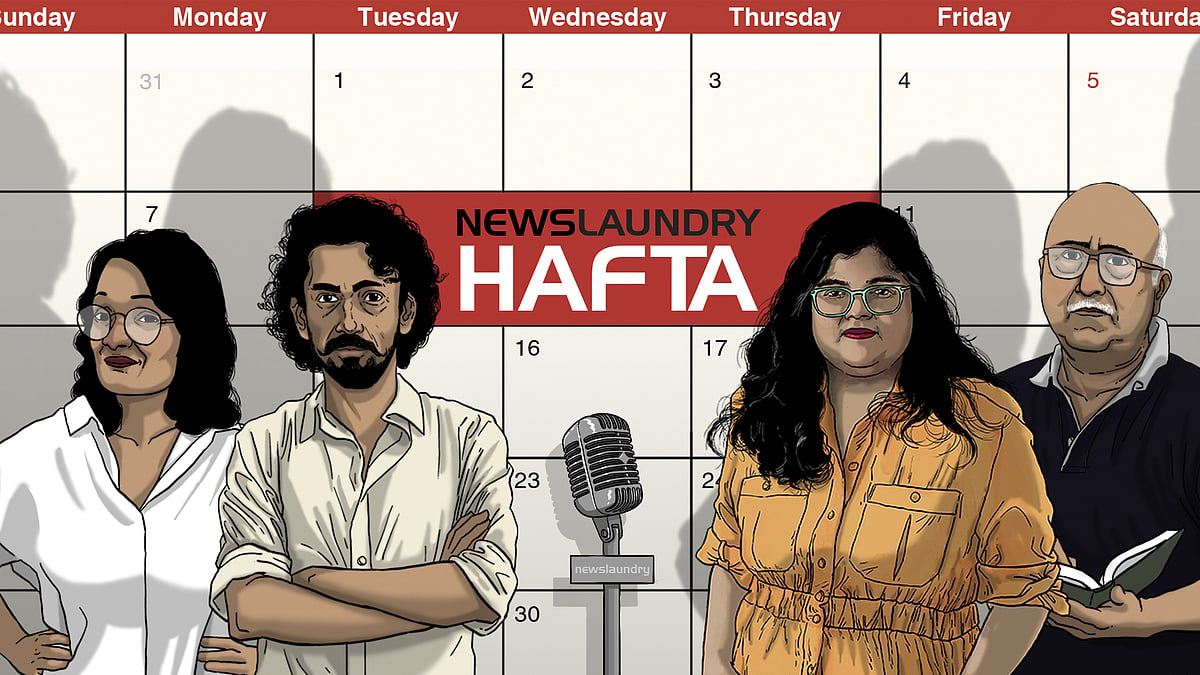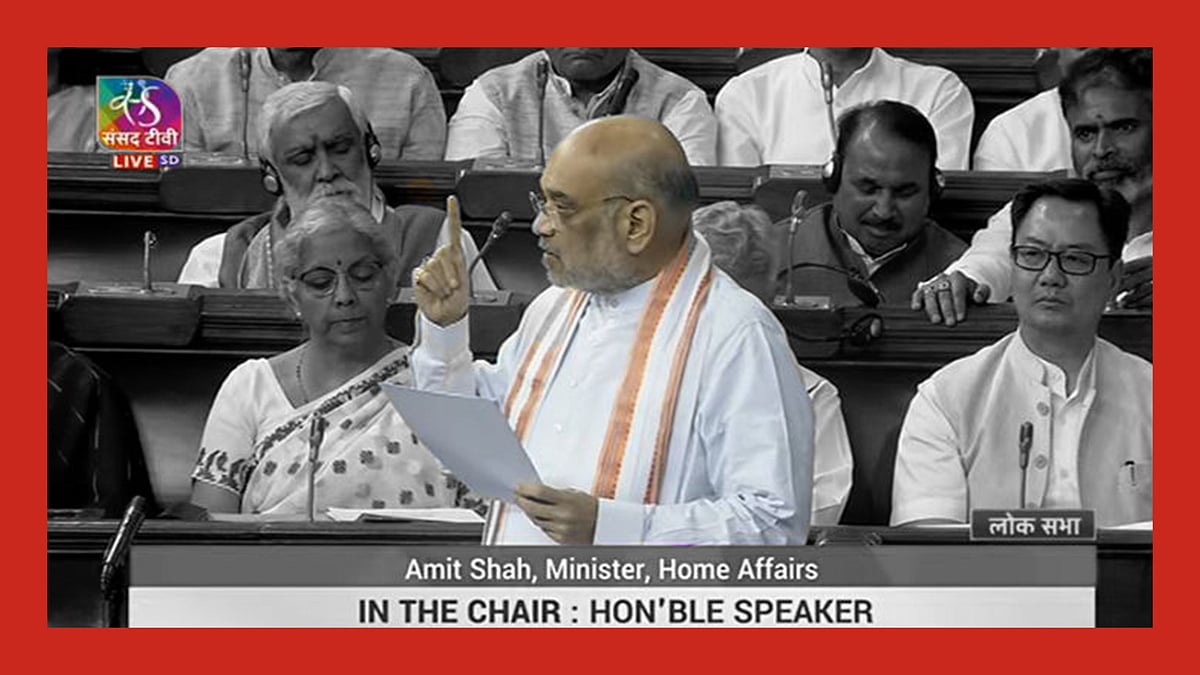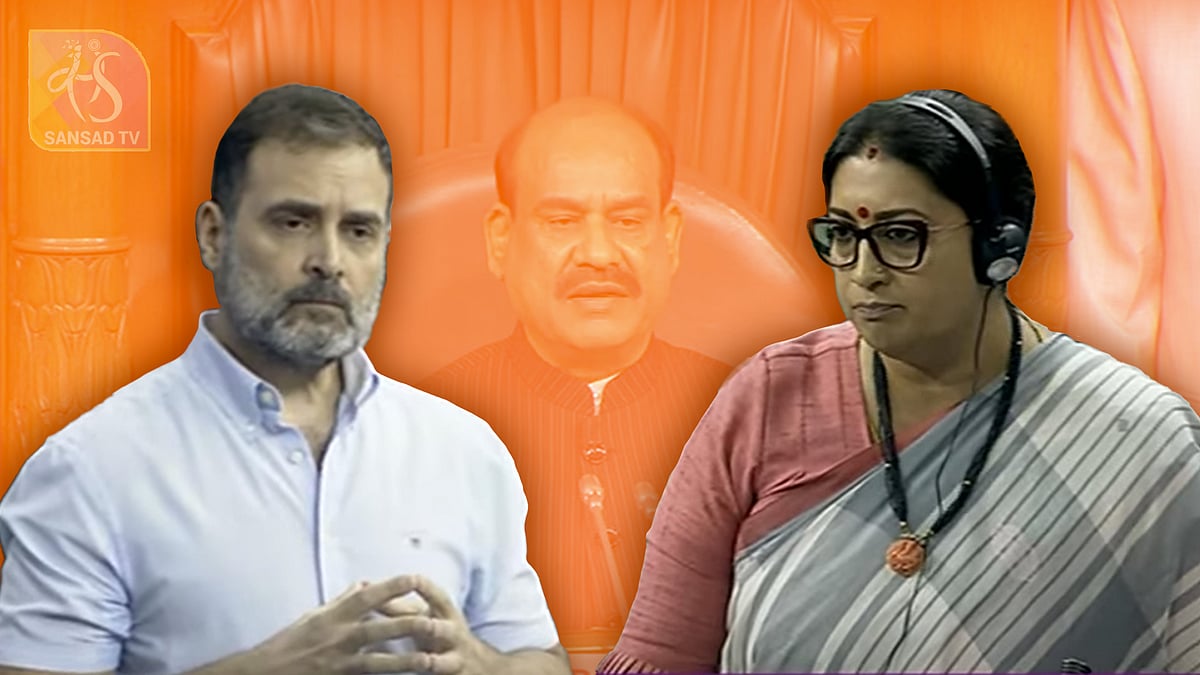Monsoon session ends: Amid theatrics, govt’s key legislative strides, legal overhauls
During the session marked by opposition-led ruckus, Lok Sabha passed 22 bills, Rajya Sabha 25, and 23 bills were passed by both the Houses.
Amid spotlight on diatribe and the theatrics of the no-confidence debate, the Parliament’s Monsoon session concluded on Friday. But the short session, marked by the opposition-led ruckus, also saw some key strides being made in core legislation. This is significant, especially during a session which recorded 45 percent productivity in Lok Sabha and 63 percent productivity in Rajya Sabha, as stated by the parliamentary affairs minister Pralhad Joshi.
During the session, Lok Sabha passed 22 bills, while the Rajya Sabha gave nod to 25, and 23 other bills were passed by both the Houses. Now, these bills need to get President Draupadi Murmu’s assent before being notified as an Act. Besides the bills that were passed, some crucial bills were introduced – and the forthcoming winter or the budget sessions will likely see discussion on them.
A set of such bills was tabled in the Lok Sabha on the session’s last day. This cluster of three bills was: the Bharatiya Nyaya Sanhita (BNS) Bill, 2023; Bharatiya Nagarik Suraksha Sanhita (BNSS) Bill, 2023; and Bharatiya Sakshya (BS) Bill, 2023. These propose to replace the three statutes that form the keystone of the Indian criminal justice system, namely the Indian Penal Code or IPC, 1860, the Code of Criminal Procedure or CrPC, 1973 [originally enacted in 1898] and the Indian Evidence Act, 1872. They are seen as the enduring legacy of the British colonial era. All the three originated in the second half of the 19th century before going through some revisions and changes over more than a century-and-a-half.
While introducing this new set of laws, Union Home Minister Amit Shah pitched them as much needed responses to contemporary demands for a fair, crisp, and speedy criminal justice system. In the larger historical arc, he also saw them as breaking the shackles of the anachronistic colonial era framing. While a major part of the existing statutes will continue to find place in the proposed codes, with some reordering of the sections, some changes have been highlighted as points of departure. These new codes will do away with the present sedition laws. However, the Bharatiya Nyaya Sanhita mentions strict punishment for secessionist acts, armed rebellion or subversive activities aimed against the sovereignty, integrity and unity of the country. Some other changes range from severe punishment for mob lynching, defining terrorism, to giving space to technology in filing FIRs and introducing new laws for ensuring speedy trial to lower the pendency of cases.
There were indications of the overhaul when the union government had constituted an expert committee in 2020 for consultations. After almost three years of the consultative process, possibly some inputs of other bodies, and lastly, its own ideas of reforming the legal system, the revamp has taken shape of these three bills. Before the next session of the Parliament, when these bills will likely be tabled in both the Houses for approval, the intervening months will see wider discourse on them.
On the penultimate day of the session, one more important bill was introduced. Seemingly, this new bill has been brought to undo the effect of a Supreme Court verdict in March which stated that until the Parliament enacts a new law, a three-member panel headed by the Prime Minister, the Leader of the Opposition and the Chief Justice of India will select the Chief Election Commissioner and the two Election Commissioners of the Election Commission of India. The government’s bill has now moved to fill the legislative vacuum the apex court had cited as the reason to propose the panel for selecting the CEC and the ECs.
The government saw the Supreme Court’s proposed panel as judicial overreach, and now has sought to restore its prerogative in constituting the panel through a legislation that Article 324 (2) of the Indian constitution entrusts with the Parliament. The proposed The Chief Election Commissioner and other Election Commissioners (Appointment, Conditions of Service and Term of office) Bill, 2023, retains the Prime Minister and the Leader of the Opposition as members of the selection committee, but replaces the CJI with a cabinet minister as member of the panel, giving the government major say in the decision-making. In the process, however, the bill proposes a cabinet secretary and two other members, not below the rank of secretary, to form a search committee to forward five names for consideration. It also makes it clear that the CEC and the ECs must be holding or have held a post equivalent to the rank of secretary.
In many ways, the bill wrests back the prerogative on the appointment of the CEC and the ECs to the government of the day. So, in essence it restores the pre-March powers, and hence, it can be seen as status quoist move to quell any whiff of judicial intrusion. At the same time, it codifies what had been a matter of practice till now. It states that the secretary-level rank will be the the eligibility for being considered for appointment. Anyhow, in terms of administrative experience at various levels and exposure to the supervision of polls, it makes little sense to look anywhere else. In formally identifying the pool to pick from, it seems that even the top-rung bureaucracy has been keen on pre-empting any chance of deviation in this regard.
While these proposed bills will have to await next parliament session for debate and approval, 23 bills are a presidential nod away from being laws. Some of these are Cinematograph ( Amendment) Bill, 2023, the Multi-State Cooperative Societies (Amendment) Bill, 2023, the Government of NCT of Delhi (Amendment) Bill, 2023, the Jan Vishwas (Amendment of Provisions) Bill, 2023, the Digital Personal Data Protection Bill 2023, the Anusandhan National Research Foundation Bill, 2023 and the Biological Diversity (Amendment) Bill, 2023.
Among these, the Government of NCT of Delhi (Amendment) Bill, 2023, was the most debated, and attracted much media attention as well. The bill seeks to replace the Ordinance promulgated by the centre in May, which itself was done to overturn the effect of the Supreme Court verdict regarding the Delhi government’s control over the administration and civil servants in the capital, except in matters relating to public order, the police and land. The Ordinance had vested that power in central government.
Except section 3A of the Ordinance, the bill retains most of its substance, including establishment of a permanent authority called the National Capital Civil Service Authority to take decisions regarding postings of civil servants and control over administrative services. The debate on the bill also saw the opposition mobilising its numbers in the Rajya Sabha, but falling short of stopping the NDA government from getting the bill passed in the upper house too. The opposition’s bid to project the issue as an assault on federal tenets went on expected lines, finding support from the INDIA alliance partners, but failing to cut ice with other regional parties, like the BJD and the YSR Congress.
The other awaited legislation was the Digital Personal Data Protection Bill, 2023, which expectedly drew different responses from privacy activists, data fiduciaries, and the state’s view of its concerns and responsibilities.
As these bills became the talking points in a section of media, an important piece of legislation — the Registration of Births and Deaths Registration (Amendment) Bill — also engaged some commentary and attention. The bill is significant in prospectively making registration of birth and death compulsory, though government needs to vastly improve the infrastructure and swell up the manpower to make such registrations accessible and hassle-free. The bill’s ambitious task of having a single identification document needs a lot of ground work to make the registration a seamless experience for millions.
As two more parliamentary sessions are left before the new Lok Sabha is elected, the flurry of law-making activities in the Monsoon session show that the government has turned its gaze to its legislative agenda for this term. While some laws were part of the regular course of governance, some were responses to either asserting the executive will over judicial intrusion or pre-empting any possibility of it.
Still the most interesting, and perhaps seminal, are the legislative exercises that the government views as the legacy-making imprints of its parliamentary interventions.
 Hafta 445: Newsclick row, China’s ‘influence operations’ and no-confidence motion in Parliament
Hafta 445: Newsclick row, China’s ‘influence operations’ and no-confidence motion in Parliament Sedition ‘repealed’, death penalty for mob murder: Three new bills to overhaul criminal justice system
Sedition ‘repealed’, death penalty for mob murder: Three new bills to overhaul criminal justice system On Sansad TV camera, Rahul Gandhi gets around 40% screen time, Smriti Irani over 90%
On Sansad TV camera, Rahul Gandhi gets around 40% screen time, Smriti Irani over 90%